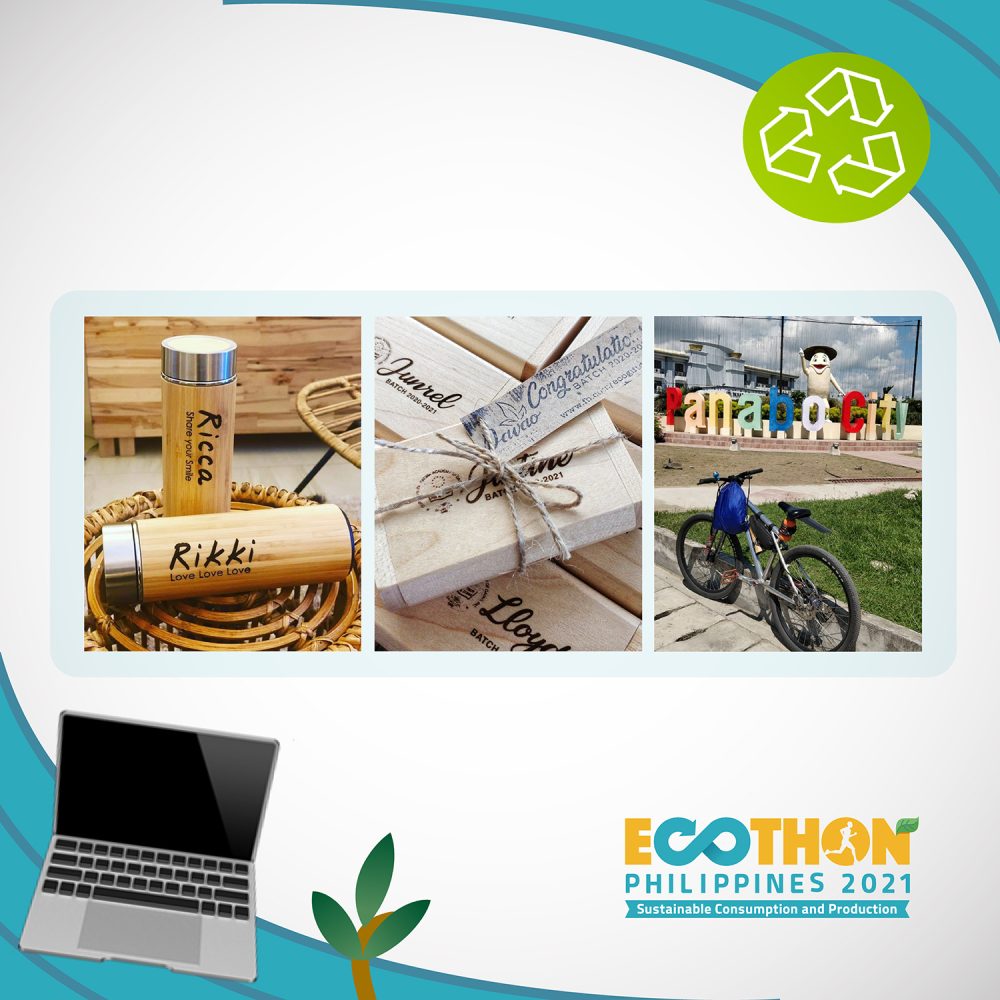By Jason Occidental
[Ecothon Stories Campaign]
When browsing through social media, we are always bombarded by ads that align with our interests. My interest, which is environmental sustainability, always presents my social media feed with unique products that claim to be environment friendly. These items are picture-perfect, have no imperfections with sleek packaging, and are topped off with a premium price.
As a consumer with a concern for the environment, I try to take a look deeper at the product and see if it is as what it promises to be, sustainable. I had a fellow advocate clamor over an online order of a reusable sanitary pad that had been wrapped in layers and layers of bubble wrap or another that raised concern over shredded package fillers in kraft boxes that came from good quality unused paper. As a green supply chain practitioner, product footprint covers its production until its disposal, including all the other materials used with it.
Another concern would be the cost, which is a major barrier to initiating a sustainable lifestyle or beginning simple practices. For some products, there is definitely a huge markup usually to cover costs of damaged items, which gets higher with the tolerance to minimal cosmetic imperfections. Deviations that are typical to natural products as well as handmade products. At the other end of the spectrum, we also question if these artisans or producers have been equitably profiting from the premium items they make or are middlemen simply taking advantage of the sustainable label.

Is this going to be the type of sustainable business that we see growing and multiplying in the market? I had to make a stand.
In 2019, equipped with my training in digital fabrication, I started my own eco-friendly business in Davao City, Philippines that aims to be as sustainable as possible, offering affordable, personalized, and eco-friendly items. I try to look at all the aspects of operations, such as opting out of chemical inks for engraving to do personalization; minimizing the impact of packaging by using recycled or biodegradable materials and even an option to have zero packaging; and reducing carbon footprint by employing bike couriers for short-distance deliveries. This reduced overhead has made our prices 30-50% lower than other competitors.
For the past 2 years, I am happy to promote the business practices that I have strictly followed. These are the guiding principles that encouraged me to start a business and it’s the example I want to set for others who want to start their own businesses that are environmentally conscious. Since we do personalized items, we have been partnering with these businesses to also promote their brand through eco-friendly products.
It is also important for businesses to hone responsible and conscious consumers. It may result in a loss of sales volume, such as how we convince customers to repurpose their old bottles rather than buying a new one from us, but it creates a relationship built upon trust and not upon money. I do believe that customer relationships built by sustainable businesses through this method create an intangible value.
Thus, it is important to be vigilant in understanding how an enterprise claims to be sustainable. Like in the elections, patronizing businesses are voting through our wallets. And similar to our right to suffrage is the need to be fully informed with our choices. We need to support businesses that have a true sense of concern for the environment, and these are typically your small businesses with minimal marketing leverage.
The author of this article is Jason Occidental, a Young Entrepreneur from Ecogift Davao.
